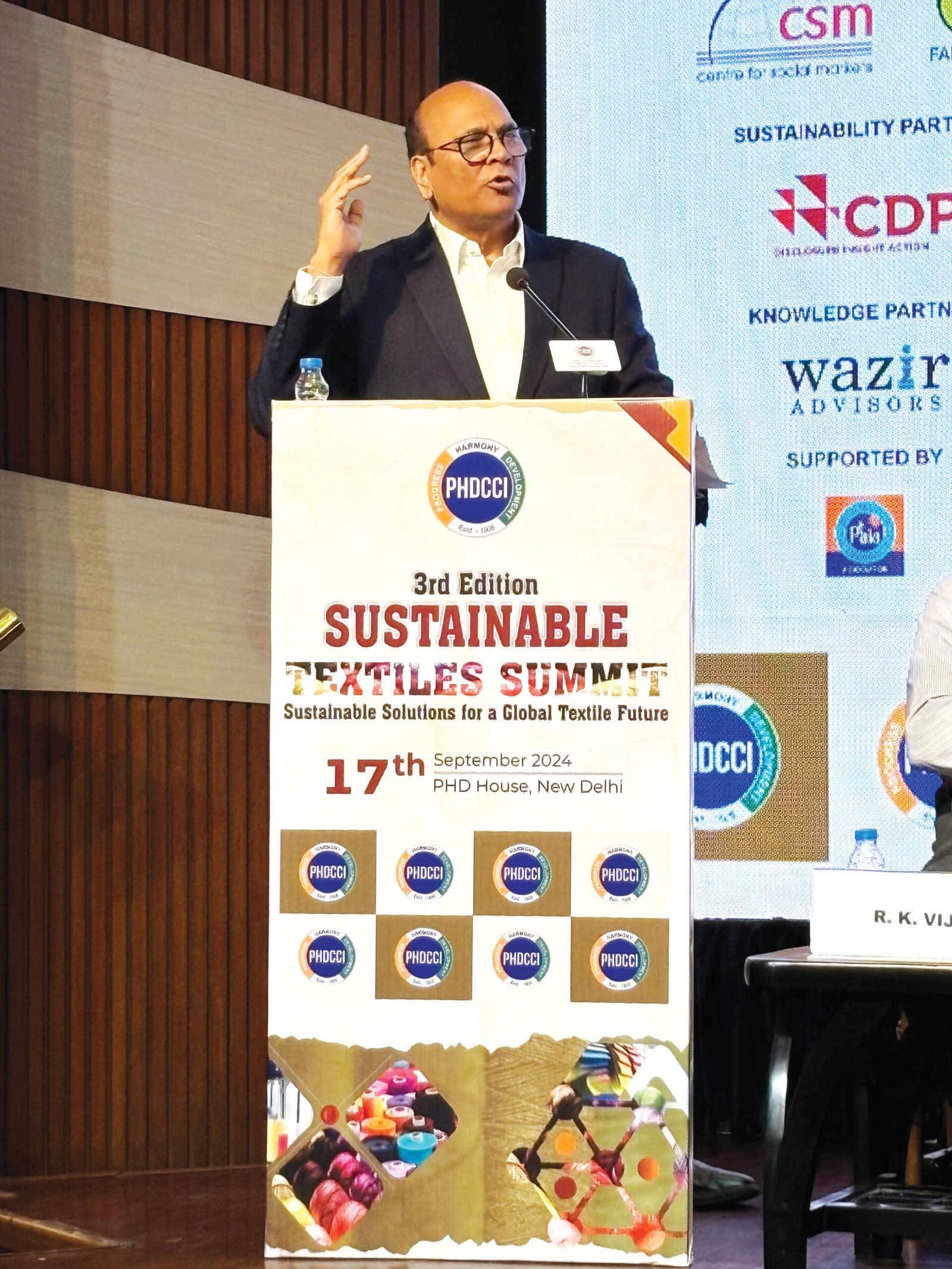18 September 2024, National: The LNJ Bhilwara Group’s flagship company, RSWM Limited, reaffirmed its commitment to sustainability by presenting its extensive Sustainability Report at the PHD Chamber of Commerce and Industry’s 3rd Sustainable Textile Summit. The report, which highlights RSWM’s continuous dedication to environmental responsibility and sustainable textile production, was presented by Mr. Pabitra Margherita, Hon’ble Minister of State for Textiles, Government of India, and Mr. Rohit Kansal, Additional Secretary, Ministry of Textiles, Government of India.
RSWM’s proactive commitment to sustainability was recognized by various dignitaries and industry leaders at the summit, including Smt. Roop Rashi, Textile Commissioner of India, Ministry of Textiles, Govt. of India. The company’s major efforts in carbon footprint reduction, circular economy practices, and innovations in green textile manufacturing are highlighted in the recently released report. Reducing, reusing, recycling, and replenishing natural resources is the cornerstone of RSWM’s strategy, which is based on the giving back to nature philosophy and reflects the company’s long-standing leadership in sustainable operations.

Report Link: https://story.rswm.in/report/RSWM_Sustainability_Report_LR_2.pdf
In an effort to combat the problem of plastic waste worldwide, RSWM recycles over 1,830 million PET bottles year, turning them into 51850 MT of recycled polyester fiber. This initiative promotes the production of sustainable textile products while drastically reducing trash sent to landfills. In an effort to further minimize its use of fossil fuels, RSWM uses 8,818 metric tons of dry husk biofuel per year. The company’s commitment to incorporating sustainable alternatives into its manufacturing processes is demonstrated by this project.
Along with these important sustainability efforts, the company carefully adheres to Zero Liquid Discharge and has installed sophisticated multi-stage treatment plants at its facilities, saving an estimated 23,36,792 kiloliters of water annually. RSWM uses 76.5 million kilowatt-hours of green energy annually thanks to its adoption of solar and wind power in an effort to reduce its dependency on conventional energy sources. This change promotes national energy sustainability and lessens reliance on regional power systems.


Through a variety of energy-efficient measures, RSWM has reduced its CO2 emissions by 800,000 metric tons annually, demonstrating the company’s proactive attitude to climate change mitigation. Furthermore, by utilizing 8,162 metric tons of recycled cotton annually in its production processes, RSWM promotes the sustainable use of resources in the textile sector and focuses on the upcycling of textile waste. RSWM utilizes 72,357 kg of organic manure and fertilizers yearly as part of its commitment to sustainable greenery, improving soil health and lowering the environmental impact of its agricultural inputs.
“Our approach to sustainability extends beyond merely meeting regulatory requirements; it represents our dedication to initiating significant change within the industry,” stated Mr. B.M. Sharma, Jr., Managing Director of RSWM Ltd. Sustainability is a fundamental component of our business, not just a mandate culture, which permeates every aspect of our business. We work hard to integrate sustainability into every facet of our organization, starting with decisions about what to trash and what to reuse.
Since we think that openness is important, we’re dedicated to sharing updates on our progress using a variety of platforms, such as internal reports and social media. Keeping a balance sheet that shows what we contribute to and receive from the environment is crucial. One of our top priorities is to include budgets specifically designated for sustainability in our yearly plans. In addition to being a business obligation, we want to prioritize sustainability as a cultural value that reflects our dedication to preserving the environment for coming generations.
RSWM has consistently innovated along its sustainability journey. The business is using more sustainable materials, such as recycled and organic cotton, silk, jute, hemp, linen, and more. These initiatives are a part of a larger plan to transform the textile sector by incorporating sustainability into all facets of its business operations.

